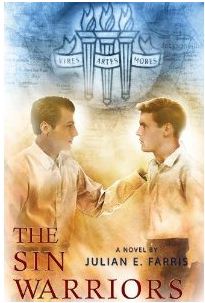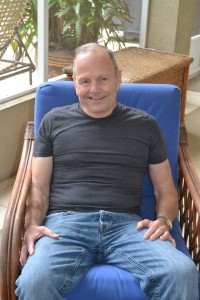 It doesn’t take much to destroy careers, pull families apart and ruin lives. A mix of ignorance and hatred, combined with an insatiable lust for power, will suffice. And in Florida, circa 1960, that unholy mix fermented in the Florida Legislative Investigation Committee, a.k.a. the Johns Committee.
It doesn’t take much to destroy careers, pull families apart and ruin lives. A mix of ignorance and hatred, combined with an insatiable lust for power, will suffice. And in Florida, circa 1960, that unholy mix fermented in the Florida Legislative Investigation Committee, a.k.a. the Johns Committee.
Using blackmail, intimidation and coercion, the Johns Committee—led by segregationist state senator Charley Eugene Johns—managed to “disappear” more than 300 suspected homosexual students, faculty and administrators from Florida’s public colleges and universities.
Julian Earl Farris’ novel The Sin Warriors (Lethe Press) uses the treachery of that time to explore themes of self-knowledge, love, loyalty and resilience. Echoes of Johns can be seen in the demagogue Billy Sloat, a small-town Florida politician who climbs to statewide office over the backs of the disenfranchised and disfavored. Exploiting the fears and mistrust of his constituents, Sloat launches a McCarthy-era witch hunt targeting gays and lesbians in academia under the premise that these “weak links” could be used by communists to infiltrate schools and corrupt students. Caught in the maelstrom, student David Ashton, another product of small town Florida, and his friends try to preserve their integrity and their futures.
The Sin Warriors is a coming of age story in which families—the ones we’re born to and the ones we make for ourselves—create the supports by which men and women stand or stumble. As in the real Johns Committee scandal, some characters in the book fold under the oppression of Sloat and his henchmen, some carry scars into the future, and others emerge sadder and stronger.
While Farris’ characters are fictional, the backdrop of the book and the substance of many incidents depicted are real. Under pressure from historians, the archives of the Johns Committee investigations and hearings were made public in 1993 and redacted copies of the documents can be found in the Florida State Archives. Farris spent months combing those documents and interviewing survivors of Florida’s “gay purge,” before writing The Sin Warriors. The book is a moving, entertaining read, but it also includes a story that must be told.
